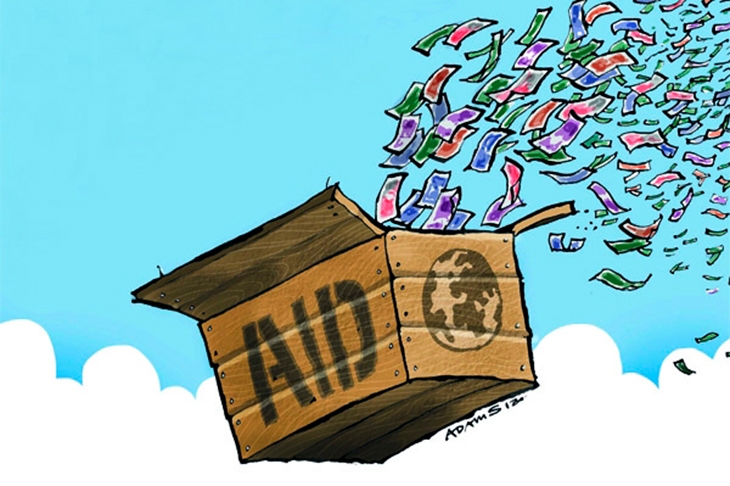Outside the Catholic mission I walked through rows of women in traditional hide skirts, squatting or sitting with legs astride, palms upturned in supplication. Many suffered from scabies and cradled emaciated babies, and all looked 20 years older than their true age. These are my memories of the Uganda famine in 1980 and these were the survivors. Africa is a different place today and so are the methods used to combat famine. But this was where I learnt about the contradictions of overseas aid.
Aid is pernicious, and injudicious aid can destroy all before it. Take food aid. It is wonderful for saving those in extreme peril, but once the extreme event has passed, it destroys farmers and local markets, and inevitably leads to corruption. It is rather like steroids in medicine, which in the short-term save the patient’s life but in the long-term can easily kill them.
Senior politicians from all sides have criticised the Chancellor’s announcement of a reduction in the aid budget from 0.7 per cent of national income to 0.5 per cent — hardly a word has been said to support it. Yet if we applied the same principle to any other government spending there would be uproar. We have long abandoned the belief that success can be guaranteed by throwing money at a problem: a theory tested to destruction in the NHS. Why, then, do we think things are different when it comes to overseas aid? Is it that we believe if we spend more we care more? Is this all about showing our virtue, burnishing our haloes, even allaying postcolonial guilt?
Only a moment’s reflection would indicate that the size of the input is unlikely to be correlated with the output.








Comments
Join the debate for just £1 a month
Be part of the conversation with other Spectator readers by getting your first three months for £3.
UNLOCK ACCESS Just £1 a monthAlready a subscriber? Log in